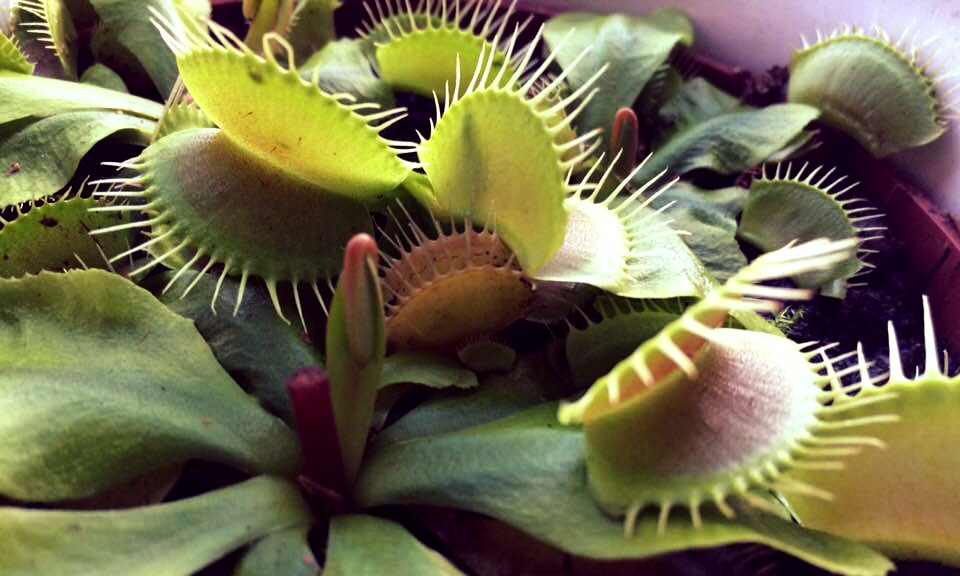Dramatic and dangerous: plants that eat animals can’t fail to intrigue us plant lovers.
From the tiniest sundew to huge Nepenthes pitchers, carnivorous plants come in all shapes and sizes, and we love them all!
I meet Megan Webb to talk Sarracenias, flytraps, sundews and more. Plus I answer a question about Monstera anatomy.
We’re all in no doubt that our houseplants are good for us, but are they good for the environment? This is an issue that’s been nagging away at me for some time now. This episode is the start of an occasional series looking at houseplants and sustainability: I’m starting by looking at peat use. And I answer a question about the aerial roots on a monster Anthurium.
In the second part of my interview with Peter D’Amato, founder of the nursery California Carnivores, I get Peter to answer listener questions about Nepenthes, discuss the weird world of naming carnivorous plants, and find out about a very unusual side project Peter has been working on. And I answer a question about a potbound umbrella plant.
I chat to Peter D’Amato, founder of the nursery California Carnivores, one of world’s leading experts in venus flytraps, pitcher plants, sundews and more. And I answer a question about repotting an Anthurium.
I find out why engineers are studying the slippery qualities of Nepenthes pitchers, which creature uses a pitcher plant as a toilet, and why Stapelia flowers look mouldy with botanist Dr Chris Thorogood. And I answer a question about a droopy string of hearts plant.
Leslie Halleck, author of book Gardening Under Lights, explains what kind of light houseplants need and the options when it comes to choosing growlights for your plants. Plus a question about Venus flytraps.
Carnivorous plants don't get more colourful, clever and downright dramatic than the tropical pitcher plants, aka Nepenthes. I chat to the founder of RedLeaf Exotics about why he loves these plants. And I offer a listener some suggestions on houseplanty places to visit in London.
Mike Clifford's garden may measure up to just 65ft long, but it's absolutely packed full of wonderful plants: I get a tour, including huge American pitcher plants and iridescent Begonias. Plus a question about pest prevention measures.
Venus flytraps - Latin name Dionea muscipula - are fascinating, fun, but infuriating when they just won't stay alive for long. I turned to Tom Bennet of Tom's Carnivores for some excellent advice on the conditions they need.










Hear an extract from Legends of the Leaf profiling the venus flytrap, and a Q&A about houseplant courses